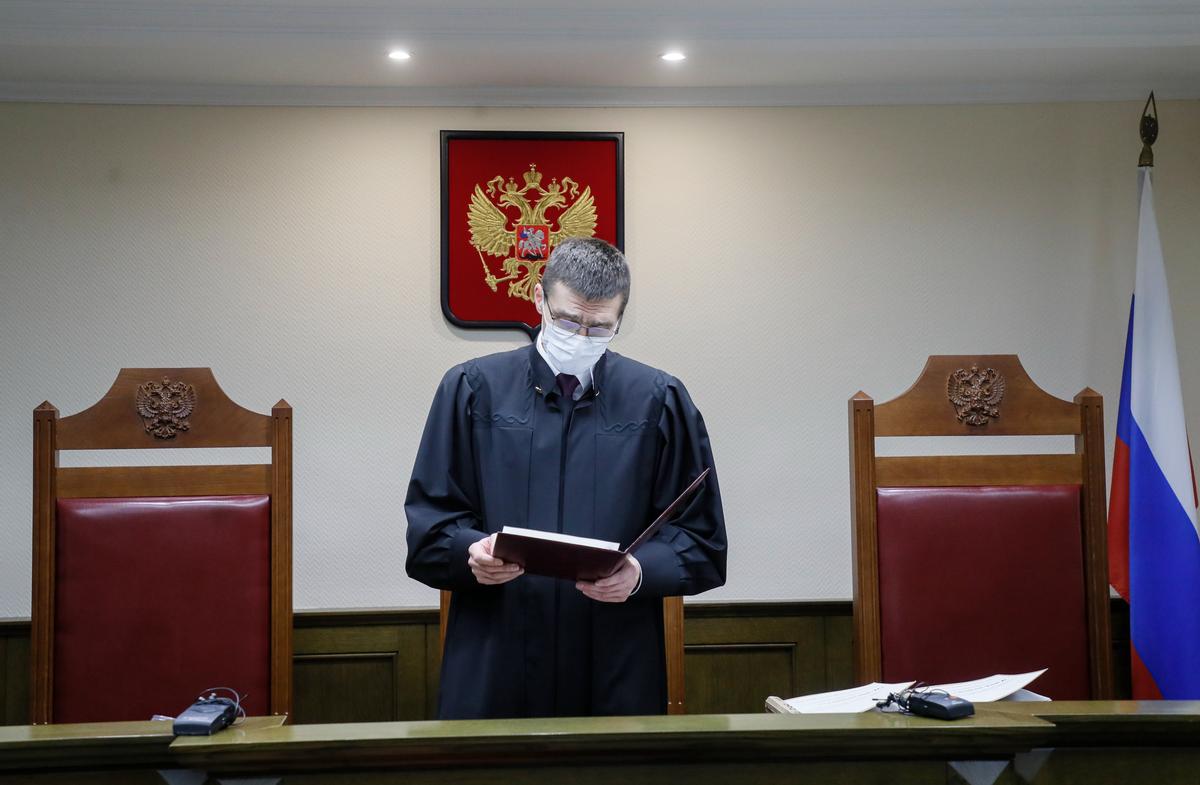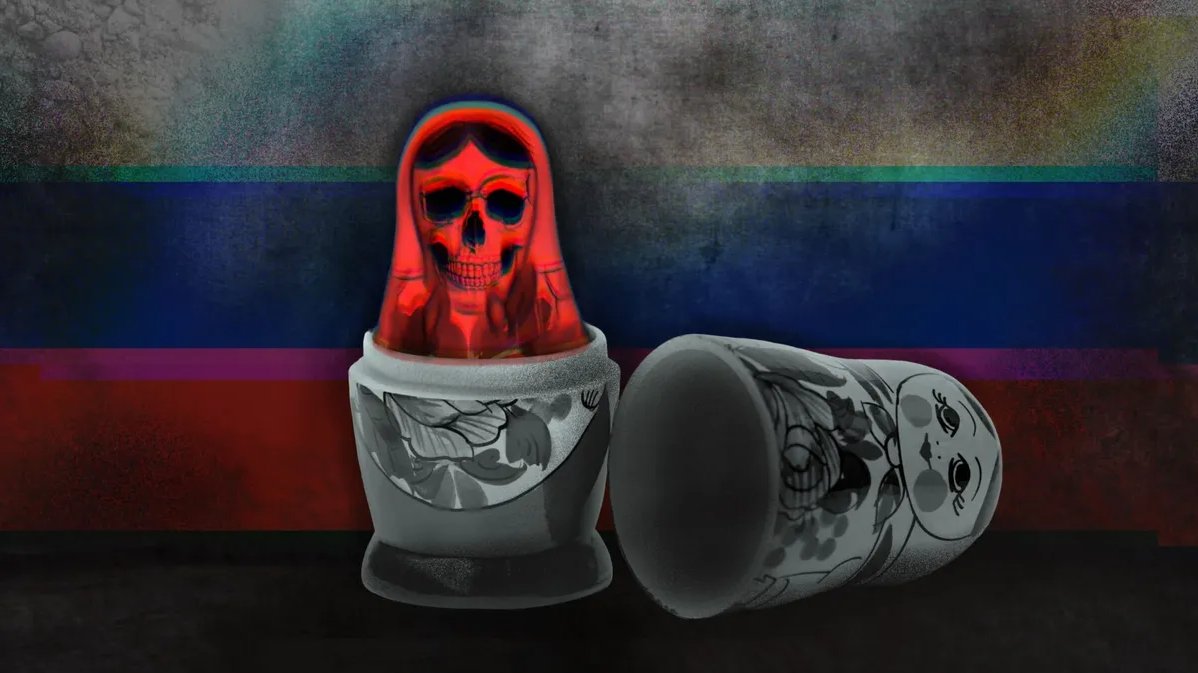In November, Russia’s Supreme Court ruled the “international LGBT movement” to be an extremist organisation, effectively outlawing LGBT activism in the country and placing anyone the authorities deem to be part of the movement at risk of prosecution.
That ruling didn’t come out of nowhere, however. A decade-old law banning the dissemination of so-called “gay propaganda” to children was amended in 2022 to make it a criminal offence to present queer-positive narratives to anybody of any age, and Russian government rhetoric has become increasingly homophobic since the country launched its full-scale invasion of Ukraine in February 2022.
The publication last week of the full 19-page text of the Supreme Court’s November ruling offered little in the way of concrete information, but did offer some clues as to why the Russian government sees queer people as such an existential threat.
‘Population control policy’
The “international movement of LGBT individuals … has been operating in Russia since 1984,” Supreme Court Justice Oleg Nefyodov writes in the opening pages of his ruling, adding that LGBT activism originated in the United States in the 1960s as part of a “population control policy”, alongside other initiatives promoting “non-traditional” relationships and family structures.
No details are provided as to how exactly the LGBT movement spread to Russia, or why 1984 in particular is considered such a key date, but the inherently anti-Russian nature of the contemporary LGBT rights movement, as well its “direction from abroad”, are both points made repeatedly in the ruling. It repeatedly mentions LGBT organisations and individuals in Russia having received funding from Western governments and NGOs, as well as, predictably, from billionaire financier and liberal philanthropist George Soros.

Judge Oleg Nefyodov reads out his ruling at Russia's Supreme Court, 30 November 2023. Photo: EPA-EFE / Yuri Kochetkov
According to the ruling, the LGBT movement and its “individual participants” in Russia have received the equivalent of €5.2 million in foreign funding since January 2020.
‘An objective threat’
The LGBT movement poses multiple threats to Russia and its national interests, according to the ruling, which warns that queer activists deliberately undermine the “traditional values” that have formed the ideological foundation of Vladimir Putin’s rule since his “conservative turn” in 2012.
Arguing that the movement’s goal is to eliminate the existing “moral condemnation” of homosexuality and instead establish “moral equivalence” between same-sex and heterosexual relationships in the minds of Russians, the ruling also explicitly links LGBT activism to fears about Russia’s worsening demographic crisis, envisaging the negative impact the “destruction of the traditional family” could have on the country’s birth rate.
LGBT activism also undermines the religious beliefs that the Kremlin believes make Russia a uniquely spiritual civilisation, distinct from the rest of the world and from the West in particular, Nefyodov continues, adding that the LGBT movement was stirring up religious discord by attempting a “reinterpretation of the Bible”.
Predictably, the ruling also mentions the threat supposedly posed by the LGBT movement to children, accusing LGBT organisations of actively and intentionally targeting minors with “propaganda”, causing them psychological harm.
While the ruling does concede that the LGBT movement in Russia has no “official registration or unified structure”, it also notes that despite its “decentralised” nature and lack of leadership, the movement has nevertheless spread to over 60 regions of Russia.
‘Inciting hatred’
The overall picture of LGBT people painted by the Supreme Court ruling is of Western-funded extremists united by a shared moral code and a love of pride parades and who are part of an insidious larger plan to destroy everything that Putin’s Russia stands for.
Enemies of “traditional values” who hold radical views based on “hatred towards traditions, religion, millennia-old culture, and their adherents”, members of Russia’s LGBT community believe themselves to be superior to other segments of society, the ruling argues, and consider those who don’t support “non-traditional sexual relationships” to be their enemies.
The ruling also conflates LGBT people with the wider opposition movement and implicates them in inciting “hatred and hostility” towards the authorities, spreading materials from “foreign agents and extremists” and encouraging Russians to join mass protests.
Marginalised and vulnerable
While going to great lengths to discredit the LGBT movement, the Supreme Court judgement provides few clues to what legal consequences might follow the ruling in practical terms, other than a vaguely worded “ban on the movement’s activities in Russia”.
The Supreme Court’s identification of the rainbow flag as the symbol of the LGBT movement makes its display illegal — displaying “extremist” symbols can land you in custody for up to 15 days, while repeat offences can be punished by up to four years behind bars — but the potential legal consequences for LGBT people, organisations and venues go unaddressed in the ruling.
The release of the court’s full judgement serves primarily to reinforce the most egregious homophobic prejudices and conspiracy theories at the official level in Russia, while its deliberately vague terms leave plenty of scope for the law to be applied indiscriminately.
Many Russian lawyers now anticipate the persecution of any individual or organisation the authorities deem to fall under the “extremist” LGBT umbrella, with those who work with or donate to “extremist” organisations facing up to 12 years’ imprisonment.
With several LGBT rights organisations choosing to dissolve themselves legally or to continue their work from outside Russia in the wake of the ruling, LGBT individuals in Russia now find themselves more marginalised and vulnerable than at any time since the legalisation of homosexuality in 1993.
Join us in rebuilding Novaya Gazeta Europe
The Russian government has banned independent media. We were forced to leave our country in order to keep doing our job, telling our readers about what is going on Russia, Ukraine and Europe.
We will continue fighting against warfare and dictatorship. We believe that freedom of speech is the most efficient antidote against tyranny. Support us financially to help us fight for peace and freedom.
By clicking the Support button, you agree to the processing of your personal data.
To cancel a regular donation, please write to [email protected]

